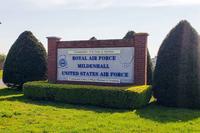As prospects for Syrian peace talks faded, U.S. military officials focused Tuesday on assisting allies Israel and Jordan as they attempt to contain spillover from the civil war that has cost more than 100,000 lives and sent more than 1.1 million refugees fleeing to neighboring countries.
On the second day of his four-day trip to Israel and Jordan, Gen. Martin Dempsey, the chairman of the Joint Chiefs of Staff, said the U.S. was getting a clearer analysis on the reliability and motives of the various Syrian rebel groups, but he made no commitments on military aid to the opposition.
"I think we are in a better position than we were six months ago in that regard of understanding the various players and their motivations" to discern between the “moderates” favored by the White House and other groups linked to al-Qaida, Dempsey said.
In May, the White House announced through deputy National Security Adviser Ben Rhodes that the U.S. would be supplying small arms and ammunition to the Supreme Military Council of the Free Syrian Army, led by Gen. Salim Idriss, a Syrian army defector. However, the rebels have complained repeatedly that the promised aid has yet to arrive.
The arms shipments have stalled as the U.S. pressed Russia, the main weapons supplier for the regime of Syrian President Bashar al-Assad, to convene a Geneva peace conference next month with representatives of Assad and the opposition.
President Barack Obama and Secretary of State John Kerry have repeatedly said that the Geneva forum offered the best option for ending the Syrian civil war.
Those efforts suffered a setback last week when Russia granted asylum to National Security Agency leaker Edward Snowden and President Obama reacted by canceling a September summit with President Vladimir Putin.
Russian officials announced Tuesday that the already-postponed Geneva talks on Syria had been postponed again.
Russian Deputy Foreign Minister Gennady Gatilov told the Interfax news that the September talks in Geneva would have to be put off at least to October because of Moscow’s other diplomatic obligations.
"It is unlikely to happen in September because there are different events, including the ministerial week at the United Nations General Assembly," Gatilov said. "We are for it happening as soon as possible, but need to be realistic about circumstances which could affect the forum."
In Tel Aviv, Dempsey said there were few prospects for a quick resolution of the Syrian civil war, which has increasingly become a sectarian conflict pitting the mostly Sunni rebels against Shia backers of the Alawite Assad regime.
"Even if the Assad regime were to fail tomorrow, the issues that fueled it will persist for some time," Dempsey said, according to the American Forces Press Service. "It will take a great deal of work and a great deal of time to resolve. We really do have to take a longer view than perhaps sometimes are discussed in certain circles."
Dempsey has consistently urged caution in the U.S. response to the Syrian conflict and has argued against Sen. John McCain, R-Ariz., and others who have called for the imposition of a no-fly zone and more aggressive U.S. support of the rebels.
Mideast analysts warned of a “rapidly deteriorating situation” in Syria made worse by the impasse between Washington and Moscow.
“President Obama has recognized finally that the strategy with the Russians hasn’t worked,” said Andrew Tabler, a senior fellow at the Washington Institute for Near East Policy.
“That’s why Dempsey’s there” in Israel and Jordan to coordinate on containing the Syrian civil war, Tabler said.
The Geneva solution “would have been very difficult to implement’ even if the warring sides could have been brought to the negotiating table, said Mona Yacoubian, a senior adviser on the Mideast at the Stimson Center.
Dempsey’s visit “indicates a growing concern about regional spillover from Syria,” Yacoubian said, rather than a rush to provide arms to the rebels in reaction to the snub from Moscow in the Snowden affair.
Arming the rebels “will be a decision dictated more by developments on the ground in Syria,” Yacoubian said. The arms shipments will flow “if they can guarantee that the arms stay in the hands of moderate elements. But in the chaos, that’s so hard to do."
Following his meeting with Dempsey, Gantz said the political and strategic shifts in the region in Syria, Egypt and Iran put a premium on closer cooperation with the U.S.
“We must be aware of them,” Gantz said of the changes, and he told Dempsey that “with your leadership and your friendship, I think we can (meet) any potential challenge in this region.”
Dempsey was expected to meet Wednesday with Israeli Prime Minister benjamin Netanyahu before continuing to Jordan where several hundred U.S. troops, Patriot missile batteries and a squadron of F-16s are stationed.
























